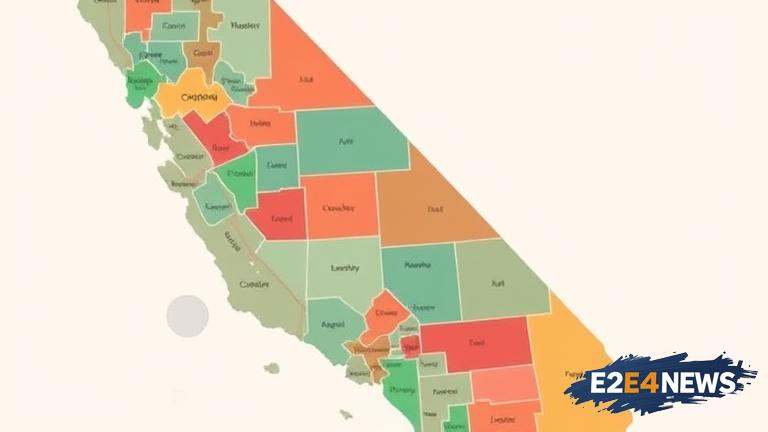The state of California is currently embroiled in a heated debate over the proposed redesign of its congressional map. At the center of the controversy is Governor Gavin Newsom’s plan, which has drawn opposition from former Governor Arnold Schwarzenegger. Schwarzenegger, a Republican, has expressed concerns that the plan could lead to gerrymandering, a practice in which electoral district boundaries are manipulated for political gain. He argues that this could result in a disproportionate representation of voters and undermine the democratic process. Newsom’s plan, on the other hand, aims to increase the number of Democratic-leaning districts in the state. The proposal has been met with criticism from Republicans, who claim that it is an attempt to consolidate power and silence opposing voices. The debate has sparked a wider discussion about the role of gerrymandering in American politics and the need for fair and representative electoral districts. Proponents of the plan argue that it is necessary to ensure that the state’s congressional representation reflects the diversity and demographics of its population. However, opponents counter that the plan is a blatant attempt to manipulate the electoral system for political gain. The issue has also raised questions about the impact of gerrymandering on voter turnout and engagement. Some argue that gerrymandered districts can lead to a sense of disenfranchisement among voters, who may feel that their voices are not being represented. Others claim that the practice can actually increase voter turnout, as voters become more motivated to participate in the electoral process. The California congressional map redesign has also sparked a national conversation about the need for electoral reform. Many argue that the current system is flawed and that a more proportional representation system would be more effective in representing the diverse views and interests of the American people. The debate has also highlighted the importance of independent redistricting commissions, which can help to ensure that electoral districts are drawn in a fair and impartial manner. Despite the controversy surrounding the plan, Newsom remains committed to pushing it forward. He has argued that the redesign is necessary to ensure that California’s congressional representation is fair and representative of the state’s diverse population. However, Schwarzenegger and other opponents of the plan remain adamant that it is a bad idea and that it will ultimately harm the state’s democratic institutions. The issue is likely to continue to be a major point of contention in the coming months, as the state’s lawmakers and citizens weigh in on the proposal. The outcome of the debate will have significant implications for the state’s electoral landscape and the future of American democracy. The proposed redesign of the California congressional map has also raised questions about the role of the federal government in ensuring fair and representative electoral districts. Some argue that the federal government should play a more active role in regulating electoral districts, while others claim that this is a matter best left to the states. The debate has also highlighted the need for greater transparency and accountability in the electoral process. Many argue that voters have a right to know how their electoral districts are being drawn and that there should be greater oversight of the redistricting process. The California congressional map redesign has also sparked a conversation about the impact of technology on the electoral process. Some argue that advances in technology have made it easier for politicians to gerrymander electoral districts, while others claim that technology can be used to increase transparency and accountability in the electoral process. The issue has also raised questions about the role of money in politics and the impact of campaign finance on the electoral process. Many argue that the current system is flawed and that there should be greater restrictions on campaign finance to prevent the manipulation of the electoral system. The debate over the California congressional map redesign is likely to continue to be a major point of contention in the coming months, as the state’s lawmakers and citizens weigh in on the proposal. The outcome of the debate will have significant implications for the state’s electoral landscape and the future of American democracy.





